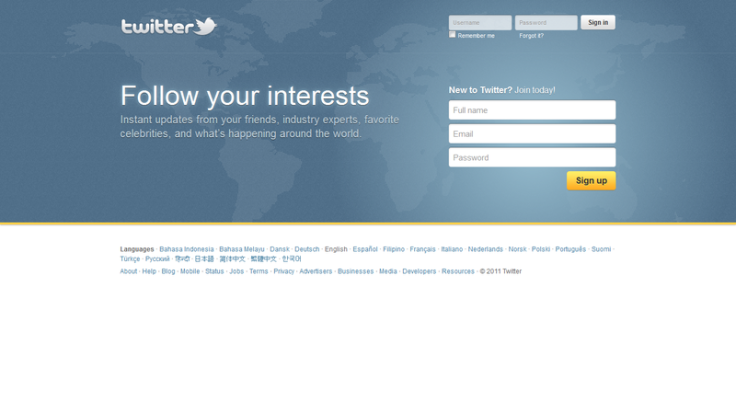Twitter's Censorship Move Aimed at Regaining China?

Twitter, the popular social networking site for micro-blogging, has announced it is open to content censorship and region-based filtering, if required by law. The service boasts nearly 300 million users from across the world.
In a Twitter post - "Tweets Must Still Flow", the service's management has stated: "Starting today, we give ourselves the ability to reactively withhold content from users in a specific country, while keeping it available in the rest of the world."
Twitter's drastic move comes in the wake of recent U.S. government allegations against Internet sites like Google, Yahoo and Facebook, regarding the need to regulate and filter controversial user-generated content. Both Google and Facebook have made similar commitments.
However, it must be seen if either of the three do follow through with those commitments.
Meanwhile, experts quoted in a report by The Times of India, where too social networking Web sites are coming under the scanner, suggest the lack of clarity in laws in countries like India means Twitter can only act reactively; the situation in Germany or France, for example, where laws about pro-Nazi propaganda are codified, they can act proactively.
Another post by Twitter speaks of a new feature that will allow the site's administrators to enable region-based selective content blocking, thereby allowing region-sensitive information to remain hidden from users in those areas. The post also cited the example of Germany and France: "Some countries differ so much from our ideas that we will not be able to exist there. Others restrict certain types of content, such as France or Germany, which ban pro-Nazi content."
There is also speculation that one reason for this decision could be Twitter's plans to re-enter the Chinese market, where the micro-blogging service has been banned since 2009. Incidentally, China boasts the largest number of Internet users in the world, at this moment.
The hope, for Twitter, must be the promise to block sensitive tweets (or those the Chinese government deems offensive) without affecting the global audience. Twitter has rarely resorted to such censorship practices. However, the company does not seem unwilling to shy away from that responsibility.
"...if and when we are required to withhold a tweet in a specific country, we will attempt to let the user know, and we will clearly mark when the content has been withheld," the company's statement said.
"The region-specific blocking was already being used on video hosting websites like Youtube and Hulu, where due to the wishes of copyright owners many videos are not available in India. Twitter is extending this technology to its tweets," said Pranesh Prakash at the Centre for Internet and Society in Bangalore, India.
"We have to take care of the sensibilities of our people. Cultural ethos is very important to us," Kapil Sibal, the Indian Telecom Minister, said last month, during his request to both Google and Facebook to filter offensive content.
The trend of social networking Web sites resisting censorship seems a thing of the past. Prakash recalls an incident in 2011, when the U.S. government sought detailed information about a Twitter user, only to be challenged, by the Internet company, in court.
Must Read:
Facebook Timeline: 5 Things To Do, Instead of Compromising Your Privacy
iPhone 4S Rival Unleashed: LG Prada Phone 3.0 on Sale from Today in UK
© Copyright IBTimes 2025. All rights reserved.




















